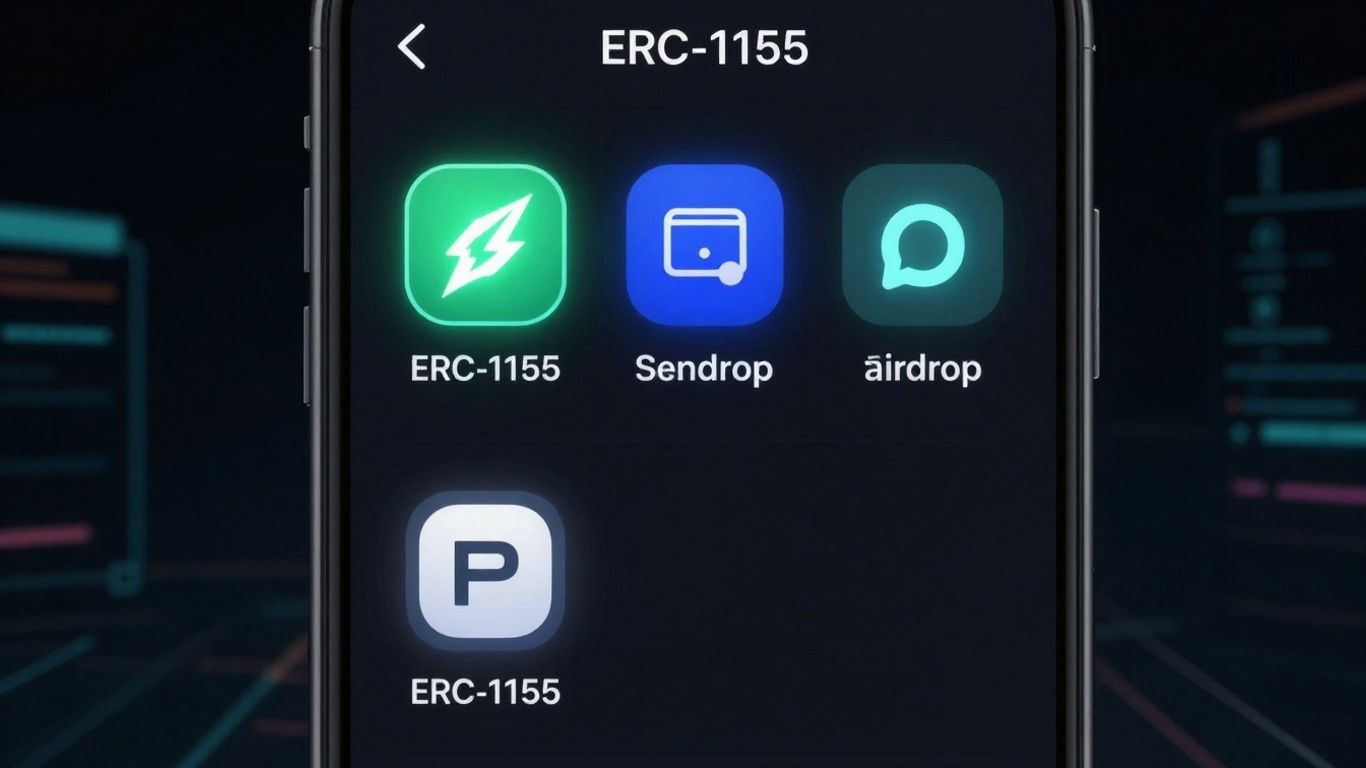[ newsletter ]
Stay ahead of Web3 threats—subscribe to our newsletter for the latest in blockchain security insights and updates.
Thank you! Your submission has been received!
Oops! Something went wrong. Please try again.
Discover how smart contract solutions are transforming business transactions for efficiency and transparency in 2025.





In 2025, smart contract solutions are set to redefine how businesses operate. These digital contracts, built on blockchain technology, streamline processes, cut costs, and boost transparency. Whether in finance, real estate, or supply chain management, the impact of smart contracts is becoming increasingly significant. If you're interested in how this technology is reshaping industries, keep reading.
Smart contracts are really changing how businesses get things done. They're like having a super-efficient assistant that never sleeps, handling all those repetitive tasks automatically. Think about it: payments that go out the second goods are delivered, or services are completed. No more endless email chains or waiting around for approvals. This kind of automation frees up a lot of time and resources, letting teams focus on bigger, more important things.
Here's a quick look at some of the benefits:
Smart contracts provide a reliable framework that reduces costs and builds trust across industries. They're not just about speed; they're about making business more reliable and transparent.
One of the coolest things about smart contracts is how they boost transparency. Every transaction, whether it's payments, asset transfers, or agreements, is verifiable on the blockchain. This means everyone involved can see what's happening, building trust and reducing the chance of disputes. It's like having a public record that everyone can access, making sure everyone plays fair.
Here's how it works:
Let's be real, manual processes are a pain. They're slow, prone to errors, and cost a ton of money. Smart contracts automate payments, compliance checks, and record-keeping, cutting down on delays and minimizing mistakes. This not only saves money but also frees up employees to focus on more important tasks. It's a win-win.
Consider these points:
Smart contracts are really changing how business is done, and for good reason. They bring a bunch of cool advantages that make things faster, safer, and cheaper. Let's look at some of the big wins you get with them.
Smart contracts really shine when it comes to automating tasks. Think about it: no more waiting around for someone to manually process paperwork or approve a transaction. Everything happens automatically once the conditions are met. This not only speeds things up but also cuts down on errors. It's like having a super-efficient robot assistant that never sleeps.
Smart contracts are a reliable framework that reduces costs and builds trust across industries.
Security is a big deal, and smart contracts help a lot here. Because they're built on blockchain, they're super secure and hard to mess with. Plus, everything is transparent, so everyone can see what's going on. This makes it easier to ensure compliance with regulations and reduces the risk of fraud. It's like having a digital fortress protecting your transactions.
One of the most noticeable benefits of smart contracts is how quickly transactions happen. Forget about waiting days for a payment to clear or a contract to be finalized. With smart contracts, it can all happen in minutes, or even seconds. This is a game-changer for businesses that need to move fast and stay competitive. Here's a quick comparison:
This speed not only saves time but also reduces costs and improves overall efficiency. It's a win-win for everyone involved. Smart contracts facilitate seamless global operations by eliminating delays caused by geographical or regulatory barriers.
Smart contracts are really changing how different industries work. They're not just a cool tech thing; they're actually making stuff more efficient and secure. It's pretty interesting to see where they're popping up.
Smart contracts are making a big splash in finance. They're helping to automate processes and cut out the middleman, which means faster and cheaper transactions. Think about it – no more waiting around for checks to clear or dealing with tons of paperwork. Here's a few ways they're being used:
In supply chains, smart contracts are like a super-efficient tracking system. They help keep tabs on goods and make sure everything is running smoothly. It's all about knowing where your stuff is and making sure it gets there on time.
Smart contracts bring a new level of trust and transparency to supply chains. By automating key processes and providing real-time visibility, they help businesses operate more efficiently and reduce the risk of errors or fraud.
Real estate is another area where smart contracts are starting to make a difference. They can help streamline property transactions and make them more secure. It's all about making the process easier and more transparent for everyone involved.

Smart contracts are getting a serious upgrade by teaming up with AI and IoT. Imagine a contract that can "think" for itself, adjusting based on real-time data from IoT devices. For example, a supply chain contract could automatically change delivery schedules based on weather or traffic. This makes contracts way smarter and more adaptable.
It's not just about automation; it's about creating a dynamic system where contracts respond intelligently to the world around them, making business operations more efficient and resilient.
One of the biggest headaches with smart contracts has been their limited scope – they usually only work on one blockchain. But now, developers are figuring out how to make contracts "talk" to each other across different blockchains. This is called cross-chain interoperability, and it's a game-changer. It opens up a whole new world of possibilities for smart legal contracts, allowing them to interact with different systems and data sources.
Decentralized Finance (DeFi) is exploding, and smart contracts are at the heart of it. We're seeing new and innovative ways to use smart contracts for things like lending, borrowing, and trading, all without traditional intermediaries. This is making financial services more accessible and efficient.
Here's a quick look at some key DeFi areas:
| DeFi Area | Description

Smart contracts are cool, but let's be real, it's not all sunshine and rainbows. There are definitely some bumps in the road that need to be addressed before they take over the world. It's important to understand these challenges so we can actually use smart contracts effectively.
Okay, so here's the deal: the law hasn't quite caught up with the tech. Figuring out the legal side of things can be a real headache.
It's like trying to build a house on shifting sand. You need a solid legal foundation, or the whole thing could collapse.
Getting smart contracts to play nice with existing systems? Not always easy. It's like trying to fit a square peg in a round hole. Here's what I mean:
Can smart contracts handle the load? That's the big question. Right now, blockchain networks can get bogged down when there's too much activity. Here's the problem:
Here's a quick look at how transaction fees can vary:
Smart contracts come in different flavors, each designed to tackle specific problems. It's not a one-size-fits-all situation. Understanding the different types is key to figuring out how they can best be used in various industries. Let's take a look at some common types.
Smart legal contracts are all about automating and enforcing business agreements. They take traditional legal contracts and translate them into code. This means that when certain conditions are met, the contract automatically executes, without the need for manual intervention. Think of it as a self-executing agreement. This can be super useful for things like:
Smart legal contracts can significantly reduce the risk of disputes and the costs associated with legal enforcement. By automating the execution of agreements, businesses can save time and money while ensuring compliance.
These contracts are focused on securing digital verification. In today's world, proving who you are online is a big deal. Identity and authentication contracts use blockchain technology to provide a tamper-proof way to verify identities. This is especially important for industries like banking, healthcare, and e-commerce, where fraud and unauthorized access are major concerns. Here's how they work:
Imagine a world where you never have to worry about your identity being stolen online. That's the promise of secure digital verification.
DAOs are a completely new way of organizing and governing a company or project. They use smart contracts to create a transparent and automated system where decisions are made by the community, not by a central authority. This can lead to more democratic and efficient organizations. Here are some key features of DAOs:
DAOs are still a relatively new concept, but they have the potential to revolutionize the way organizations are run. They offer a more transparent, democratic, and efficient way to manage resources and make decisions. Think of it as a company run by code, where everyone has a say. Check out the innovative use cases for smart contracts.
The buzz around smart contracts isn't just hype; it's backed by serious growth projections. From what I'm seeing, the smart contract market is expected to explode in the next few years. We're talking about a compound annual growth rate (CAGR) that could make your head spin. This growth is fueled by the increasing recognition of smart contracts' ability to cut costs, boost transparency, and streamline operations across various sectors.
Right now, smart contracts are making waves in finance and supply chain, but that's just the beginning. I think we'll see them pop up in all sorts of unexpected places. Think about healthcare, voting systems, or even personal identity management. The possibilities are pretty much endless. Broader adoption hinges on a few things:
Smart contracts are poised to change how business gets done on a global scale. Imagine a world where international trade is faster, cheaper, and way less risky because everything is automated and transparent. That's the promise of smart contracts. They can eliminate the need for intermediaries, reduce fraud, and make sure everyone sticks to the terms of the deal. It's not going to happen overnight, but the direction is clear. The adoption of smart contract development services will continue to grow.
The future of business transactions looks set to be reshaped by smart contracts. As the technology matures and becomes more accessible, we can expect to see a significant shift towards automated, trustless systems that will transform industries worldwide. This will require collaboration between developers, regulators, and businesses to ensure that smart contracts are implemented in a way that is both efficient and compliant.
Smart contracts are really changing the game for businesses everywhere. They make things faster, safer, and cheaper, which is a big deal in industries like finance, healthcare, and real estate. Sure, there are still some bumps in the road, like legal issues and tech glitches, but the progress is clear. As more folks get on board and work together, we can expect to see even more cool uses for smart contracts in the near future. The examples we've looked at show just how much potential this tech has for 2025 and beyond. If businesses want to stay competitive, embracing smart contracts is definitely the way to go.
Smart contracts are digital agreements that automatically execute actions when specific conditions are met. They help businesses by making processes faster and reducing errors.
They automate tasks that usually take a lot of time and effort, like processing payments or managing contracts. This means less waiting and fewer mistakes.
Industries like finance, real estate, and supply chain management are leading the way in using smart contracts to make their operations smoother.
Some key benefits include faster transaction times, lower costs, and improved security. They also help build trust because everything is recorded on a secure blockchain.
Challenges include legal issues, technical problems when connecting with other systems, and making sure they can handle a lot of transactions without slowing down.
The future looks bright! Smart contracts are expected to grow in popularity, with more businesses adopting them to improve their operations and reduce costs.


